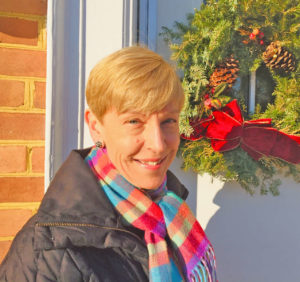 Progressive Voice is an biweekly opinion column. The views expressed are solely the author’s.
Progressive Voice is an biweekly opinion column. The views expressed are solely the author’s.
By Cheryl Moore
Every year from Thanksgiving through year-end, my mail fills up with pleas from various nonprofit organizations — for financial donations, groceries or holiday gifts for low-income families in Arlington.
Nonprofits’ posts on Facebook and Twitter remind me that, despite Arlington’s wealth, many people still struggle with needs like food, housing, education and employment.
“We have over 28,000 people in Arlington living on $35,000 for a family of four,” says Anita Friedman, director of Arlington County’s Department of Human Services.
While our holiday donations help in the short-term, just throwing money at a problem isn’t necessarily a progressive solution. To reduce disparity, we need to fundamentally tackle the root causes that are keeping some in our community from achieving stability and success.
Making systemic change supports employment, education and health care–some of the tools needed as a springboard to self-sufficiency. Here are just a few examples.
- Building a better future for Arlington residents living on the edge is the goal of the Bridges Out of Poverty Leaders in Arlington’s nonprofit sector, Arlington County staff, and the Arlington Community Foundation are collaborating on lifting families out of poverty by coordinating resources in health, mental health, employment, child care, education, housing and social capital. This goes beyond just day-to-day stabilization.
- La Cocina VA is a culinary training program for un-employed and under-employed immigrants. Students graduate with the practical skills and English-language proficiency that help them secure higher-paying jobs in the food service industry.
- Just Neighbors provides legal services that enable low-income immigrants and refugees to gain the legal status they need to work, so that they can support themselves and become self-sustaining members of their communities.
- R.E.A.D. (Read Early and Daily) offers families in need a free book a month for each child between birth and five years old. They also promote family literacy by sponsoring family reading playgroups.
- APAH (Arlington Partnership for Affordable Housing) is partnering with Edu-Futuro to prepare high school students for college and careers through skill-building in writing and public speaking.
- Arlington Free Clinic‘s “Filling the Gap Campaign” aims to triple the number of low-income clients who receive dental care. Because many diseases that start in the mouth can cause life-threatening illness and chronic conditions, proper dental care has an enormous effect on health and well-being.
“Change is happening, but it takes time,” said Arlington County’s Friedman. “Coalitions of nonprofits such as Bridges out of Poverty have been bringing the voice of the poor to the forefront so that our approaches to helping people are informed by their day-to-day realities.”
Each of us can also help promote systemic change. Consider first steps such as:
- If your employer has an ongoing relationship with a local nonprofit, ask what can be done in addition to hands-on, practical assistance. Your company may be able to offer help with strategic planning or other ways to address root causes of a problem.
- Urge your elected officials to make job training and education that support low-income individuals a priority in the County budget and hold them accountable.
- Support legislative efforts that enable jurisdictions like Arlington to set a minimum wage higher than the $7.25 per hour mandated by the federal government. According to the Massachusetts Institute of Technology living wage calculator, the annual income it takes to raise three children in a household with two working adults in Arlington is over $92,000. You can also support Sen. Barbara Favola’s (D-31) bill to provide paid sick leave for the 1.2 million Virginians — mostly low-income–who do not receive it.
It’s still important to support Arlington’s vulnerable residents by contributing to safety-net programs. As Charlie Meng, director of the Arlington County Food Assistance Center said “During the month of December, we must raise over 25% of our annual goal.”
Yet we also need to focus much harder on affecting long-term transformation. Creating a more hospitable and equitable environment for everyone who lives here requires getting behind strategies that offer a springboard to a better future.
Cheryl Moore is an active community member and volunteer who has lived in Arlington since 1983.
Editor’s note: A few Progressive Voice columns, including this one, will be publishing outside of the new biweekly schedule, following our column changes earlier this fall.

